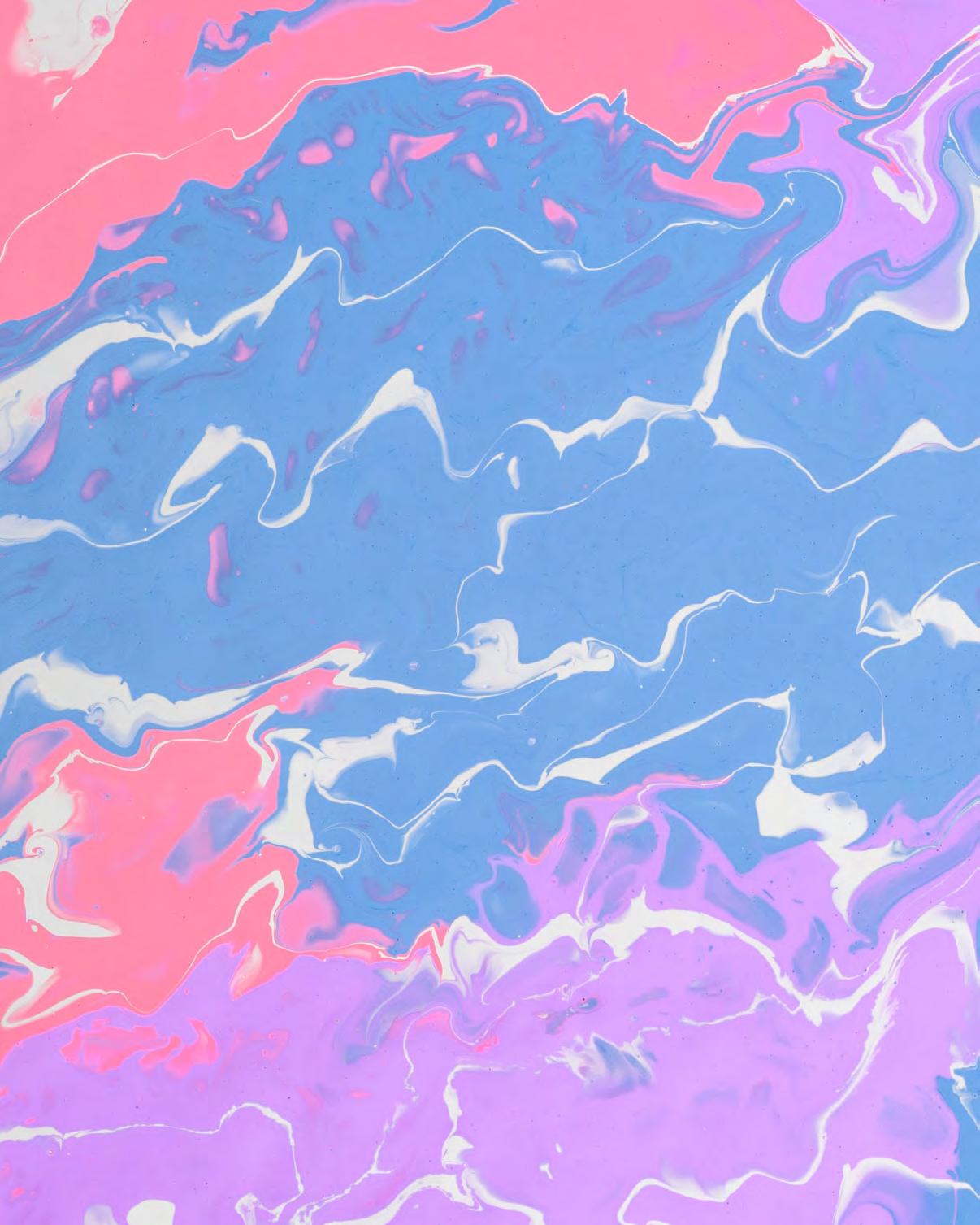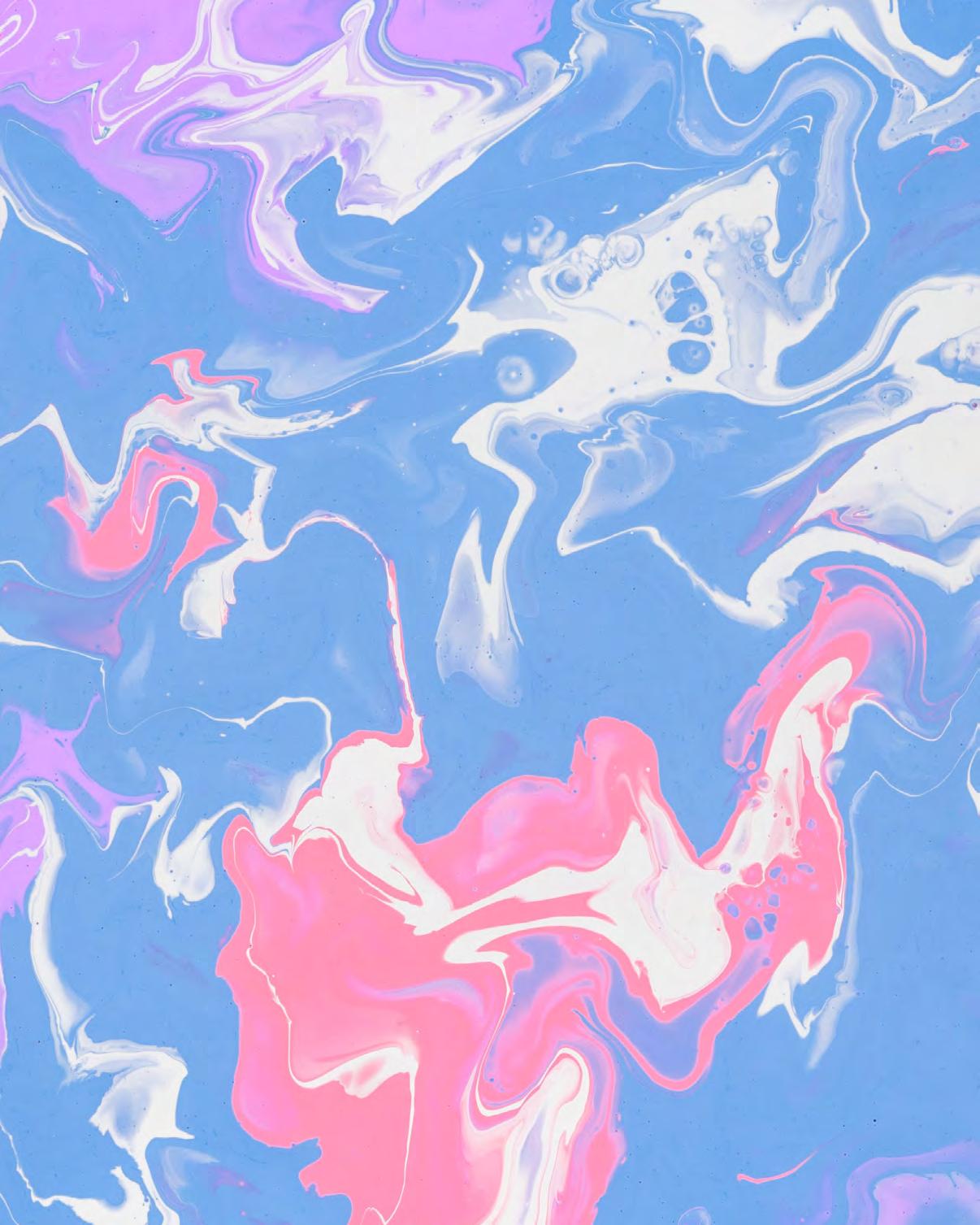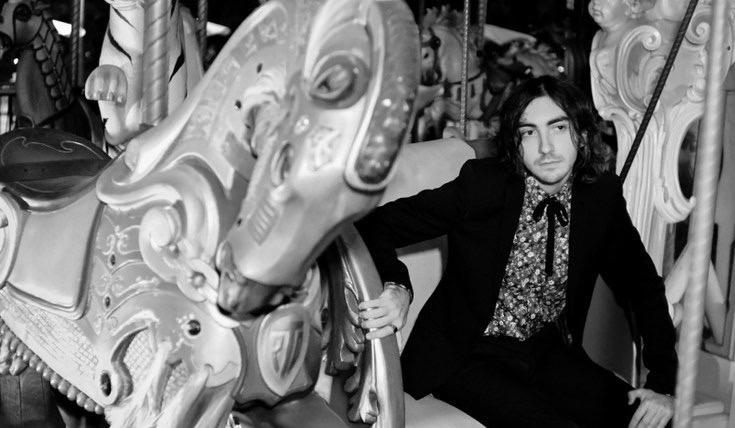
10 minute read
Dylan Gardner Q&A
ADVENTURES IN PSYCHEDELIA
Communicant’s Dylan Gardner speaks new EP, beginnings and music inspiration
Advertisement
Story by Marissa De La Cruz Photos by Dylan Gardner Design by Michael Quintero
Led by frontman Dylan Gardner, Communicant is a psychedelic band that will leave you wanting more. Their six track EP “Memory Palace” released in March 2020 gave a whole rebrand for the young artist.
Gardner started out in the alt pop genre as a solo artist, and had previously released two albums: “Adventures in Real Time” (2014) and “Almost Real” (2018). “Memory Palace” has taken a different route, transforming both sound and presentation. Basement got to talk with Dylan about his beginnings/experience in music, “Memory Palace”, and his passion for music.
M: What inspired you to get into music and how was it at first?
DG: I grew up in a very musical house. My mom worked at record stores her whole life, my dad played in bands his whole life, so I was sort of the byproduct of both of those things coming together. My brother, who is the drummer in Communicant is eight years older than me, he was playing drums around the house growing up, so in a way that’s just gonna rub off on you. I just started playing and writing my own songs when I was about 13 or 14 when my parents were the first people to notice and be like “Are you writing those songs?” and I was like “yeah!” So I just never stopped playing and writing and just trying to learn as many instruments as I can while learning about the song craft. And it was just like a kid in a candy store. For me it took an idol, like Jimmy Page for guitar, Elton John for piano. I would want to learn all their songs so I would get into the instruments through them. My first public performance was when I was 7. I did the school talent show and did a drum solo. Looking back at it, it sounded pretty good! It was funny. I had like the velvet blazer and a buzzcut looking like I was in the James Clarke 5, but it was awesome, getting into music was as pure and as fun as anyone would want it to be. I

M: How does your first album differentiate from your current album, both process wise and experience wise?
DG: They’re very similar in terms of it’s just me in a room writing every single song by myself and playing every single instrument by myself, but they’re obviously extremely different musically. When I was 16 my worldview was very small and although I was still listening to the same music, like psychedelic rock, you would never know that cause my music was very indie pop, bubbly, bright. It’s like a snapshot of me at the time but I’ve always wanted to make psychedelic music and be The Doors, Jefferson Airplane, or the late Beatles because that’s what I always wanted to be. I mean a difference now is the music is much more mature, so are the lyrics, I’m a much better musician. The biggest difference is how much more I care about texture. I mixed more than half of this record, which I’ve never mixed my own stuff before. I wouldn’t have never thought about doing that cause it’s like an artistic death sentence but I just learned how to do it cause you have to, it’s just another skill. I also did the artwork on Memory Palace so they both carry a very DIY nature to them.
M: I remember listening to “Adventures in Real Time” and thinking that it sounded very early Beatles then hearing your current and being reminded of late 60’s Beatles.
DG: Yeah! It’s the before and after. To me I’ve always wanted to make that music since I was young so bad, I just didn’t have the mental tools or the confidence to make music like that. To me as a kid it was sole to me that it had to be a radio single, it’s gotta be this, it’s gotta be that. I let a lot of that get to me. But I was really happy I was able to discard that and just make what was in me which everyone wants to do, and I feel like if it’s gonna be a radio single it’s not gonna be because they tried to make it a radio single. It’s gonna be something that came honestly out of you. People can tell. The thing that finally gave me the confidence to go to the top was the record in between that second “Dylan Gardner” record which I don’t like mostly because of the experience of everything. It makes a lot of people happy but to me it’s like a shit stain. Because it just got so far away from what I wanted it to be. When I was 16, I truly was making music that was from my heart. And when I was 18 making Almost Real, I was making the music in my heart no doubt cause I’m writing all these songs and there’s some songs that I’m really proud of but I was making them with this subconscious umbrella of this “needs to sell,” this “needs to be commercial,” “this needs to be top 40,” and to me that’s the artistic kiss of death. Once I got off Warner Brothers, I was like I gave into the pop machine and I have nothing to show for it. I learned that lesson very young as an 18-year-old. Like this is a chance to undo that and truly make what’s in my heart. Whether it sells or not, whether it’s anything. It’s an uphill battle and it’s just what you have to do. That is what put the confidence to make Memory Palace. I made a lot of recordings between that and essentially made a third album that had a pinkie toe in the direction where I’m heading now. It was cool and everything but a lot of the stuff I did on there never came out because I realized this is transitional. I’m dipping my toe in the water and I just need to jump in. So, I made the hard decision. I spent so much money making
that third record. And I was like “I can’t put it out, you have to put out something that is real. Scrap the whole thing, start it over,” and that’s what memory palace is and that’s what this new album is. Now I’m at a place of Zen and happiness because I’m just making the music of my brain. It just flows out so naturally
M: What inspired you to change genres from pop to psychedelic?
DG: That was the music I’ve been listening to my whole life. I just always gravitated towards psychedelia. When I was a kid The Beatles, The Doors, Jefferson Airplane, Jimi Hendrix, and the Zombies were huge on me. And I really got into their songwriting while starting to gravitate towards psychedelic work without truly knowing what psychedelia was. I just loved the world. It was just so magnetizing to me. I started to say to myself “man, I wish I can make that music then I would be happy,” but why don’t I? Really nothing is stopping me except the mental crutch that I think it’s not gonna sell. I then said screw that. I was just like “stop. Just make music, stop fighting it and make psych music,” and when I did it was the best feeling ever. It just feels so natural for me, it’s where I belong, where I feel happy.

M: What was the inspiration behind Memory Palace?
DG: It came about as I was finishing up my album. I finished them at the same time. I wanted to have an EP or something out that people can live with until I get the album perfected. The inspo was that I saw a group of songs that didn’t make the album in terms of it just didn’t fit with the track listing and the flow of music I wanted. It was the first time I had great songs that didn’t make the album so I put those aside and wrote some new ones like “Feeling Better’’ and “Quicksand ” and I did a cover of one of my favorite songs of all time “Parachute” by Sean Lennon. I wanted it to be a bite size experience that felt like an album. I was really proud of it and it really flowed together well. And I remember just piecing the track list together and I’m really proud of that EP. DG: The most interesting one was “New York Times” because Syndie Jo, who sings on that song, first of all I’ve never done a duet before and she was someone who I met on Instagram because we liked each other’s music. She started following me around Adventures in Real Time and was one of the first “fans,” but we always stayed in touch. I really liked her voice. I was like “Man, there’s something about your voice and I really wanna do a song with you.” And I asked her “Do you wanna do like Facetime and try to write something? Do you have anything that you don’t wanna play for anybody? Something you wrote that you’re scared of playing,” and she says, “Well there’s one thing” and she plays 5 sec of it. “I lost my heart in the New York Times” and I was like “What? Dude that’s a great melody. Let’s work on that.” And she says, “Oh it’s not about anything, I don’t have a verse.” And I said, “No let’s figure it out.” So, we looked at the first couple lines she had, and I said, “Let’s make this song about touring, about going around the world.” And the sense of adventure but also of loneliness. So, we wrote that song over Facetime and that’s probably the most fun writing story. “Feeling Better” I was just walking out the door and I got that melody and played it on piano. The end of the song was how it was written initially. Played it on piano and it just came out. Most of my songs I don’t remember writing cause it happens so fast. A song like “Quicksand” I read a story about a guy who shot a lover of his girlfriend and was running from the police and some version of a gang, he was just wanted in every direction and I thought it was really interesting story I wanted to try my hand out on like a story song. Something that was just very visual. I was watching a lot of desert movies and I thought it was just a fun invention of taking the psychedelia feel to the desert as a story. I think that those are the most interesting stories I can think of.
M: Personally, I think this album sounds more authentically you compared to the other albums.
DG: Yeah. I’m not like trying. It always sounded like I was trying in a bad way. That is the first thing that I have heard from a lot of people. Like “This is so you,” like verbatim. It hits the nail on the head on what I’m talking about. I’ve been listening to that type of music my whole life, that’s who I am but it wasn’t the music that was coming out of me. It was a very disjointed thing I had to adjust. I wish I could go back to when I was 16 and shake myself and be like you have an opportunity to do this back then but everything happens for a reason.
M: Do you have anything else to add or announce?
DG: Yeah. I have a new record coming in 2021. We’re putting out a new vinyl 45’ with a label called Hypnotic Bridge in November (2020) and a new music video which is shot in 8 mil which will be cool and two new songs coming out in November. But yeah, we’ll have our album out in 2021.
Look out for Communicant’s new album coming in 2021 and check out their current EP Memory Palace which is out now.











